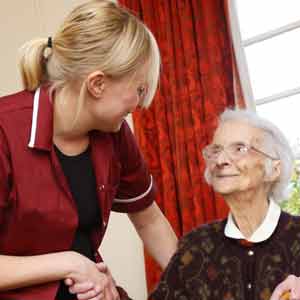New research on the brains of mice revealed that turning immune cells in the brain into neurons can help mice that have suffered stroke-like damage to successfully restore their brain functioning.
When someone suffers from a stroke, their whole life changes. A stroke can bring about disability, difficulty with mobility and speech, and a level of dependence upon others that wasn’t present before. If a stroke is treated quickly, the road ahead often has a positive prognosis.
Stroke recovery can be long, painful, and arduous. It can involve physical, speech, and occupational therapy, along with counseling, one on one aides, medication, and more. The path forward will look different for different people, but there is typically one common factor: it’s really hard.

Research indicates that stroke recovery could be made easier by converting immune cells into neurons.
That’s why this new research is so important. It provides more insight into how people that have had a stroke might have better outcomes when it comes to recovery.
The researchers found that mice who had suffered from stroke-like damage could have immune cells within their brain trained to take on the role of neurons. This presents a novel way of reproducing lost neurons, something that is far more difficult than reproducing other cells within the body. The process works by focusing on microglia–the brain’s immune cells. They are already in the brain and they naturally move toward postions of the brain that have been injured because of stroke.
Mice are not exactly like humans, but when it comes to things like the brain, there are some surprising similarities. They are the standard when it comes to research like this.
This research came out of Kyushu University in Japan. They published their findings in the Proceedings of the National Academy of Sciences. Hopefully, this research helps lead to improved outcomes for those that are recovering from stroke or other brain injuries. There’s always room for improvement when it comes to improving the quality of life that someone in this situation is experiencing; research like this is much needed.
If you have more questions about stroke recovery, it’s important to work closely with a doctor. While advice like this can be a good start, I’m not a medical professional and can’t give you the right kind of advice here. Working with a physician that knows you and your background can help far more than a blog post can.
Our team is always happy to talk more with you. We can help you and your family deal with the challenges that come along with stroke recovery and more. Finding the right senior care for your family’s situation might seem like a challenge, but when you have a team supporting you, these kinds of things can become much easier.
This is where in-home care thrives, actually. Rather than having a loved one relocate, you are partnering with a team of professionals. It allows the family to continue to play an active role in the care of your loved one, all while tapping into the resources and knowledge that comes with working with a professional.
Let us know if you have questions. We’re here to help families like yours get the best assistance possible.


Leave a Reply